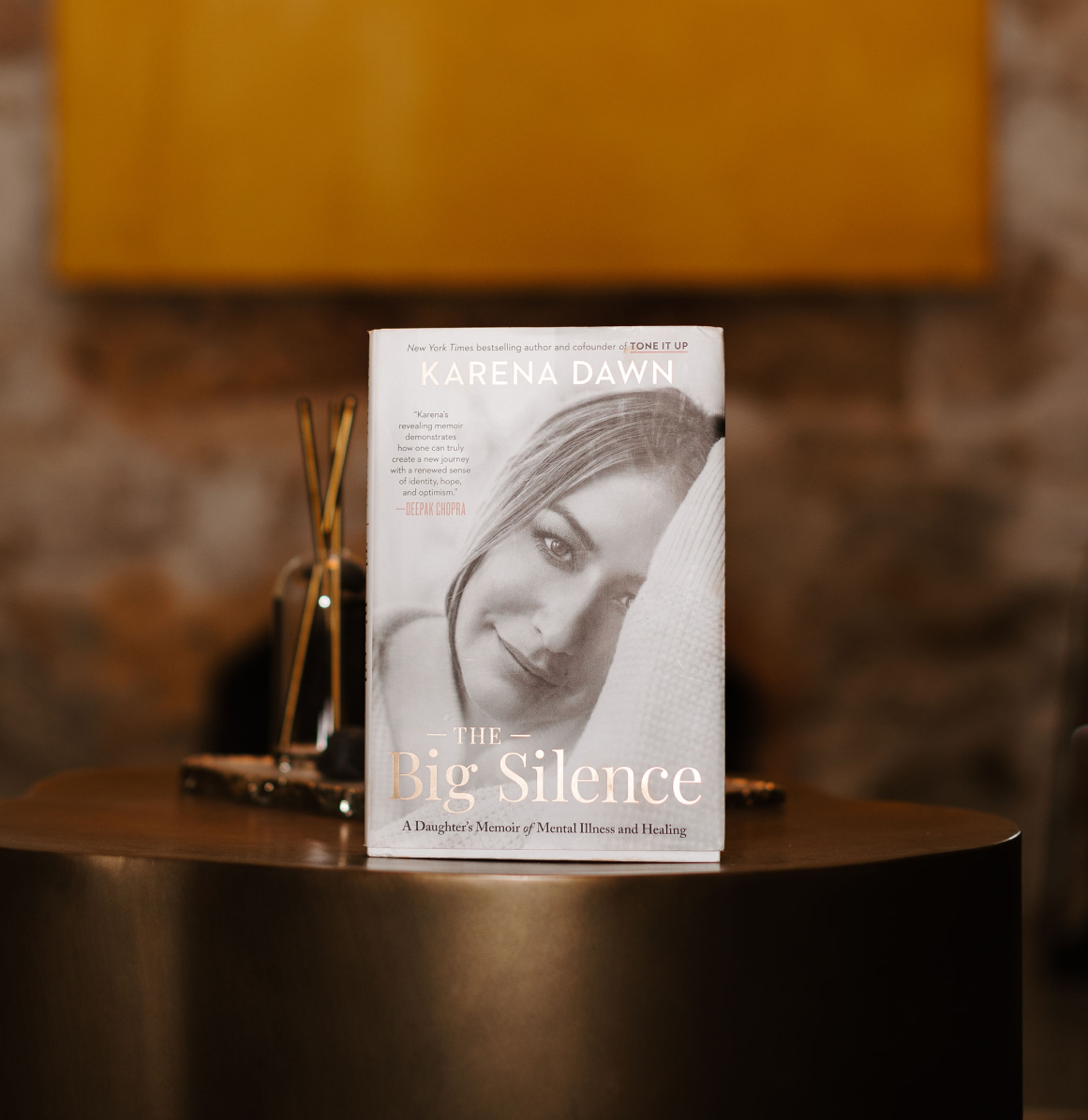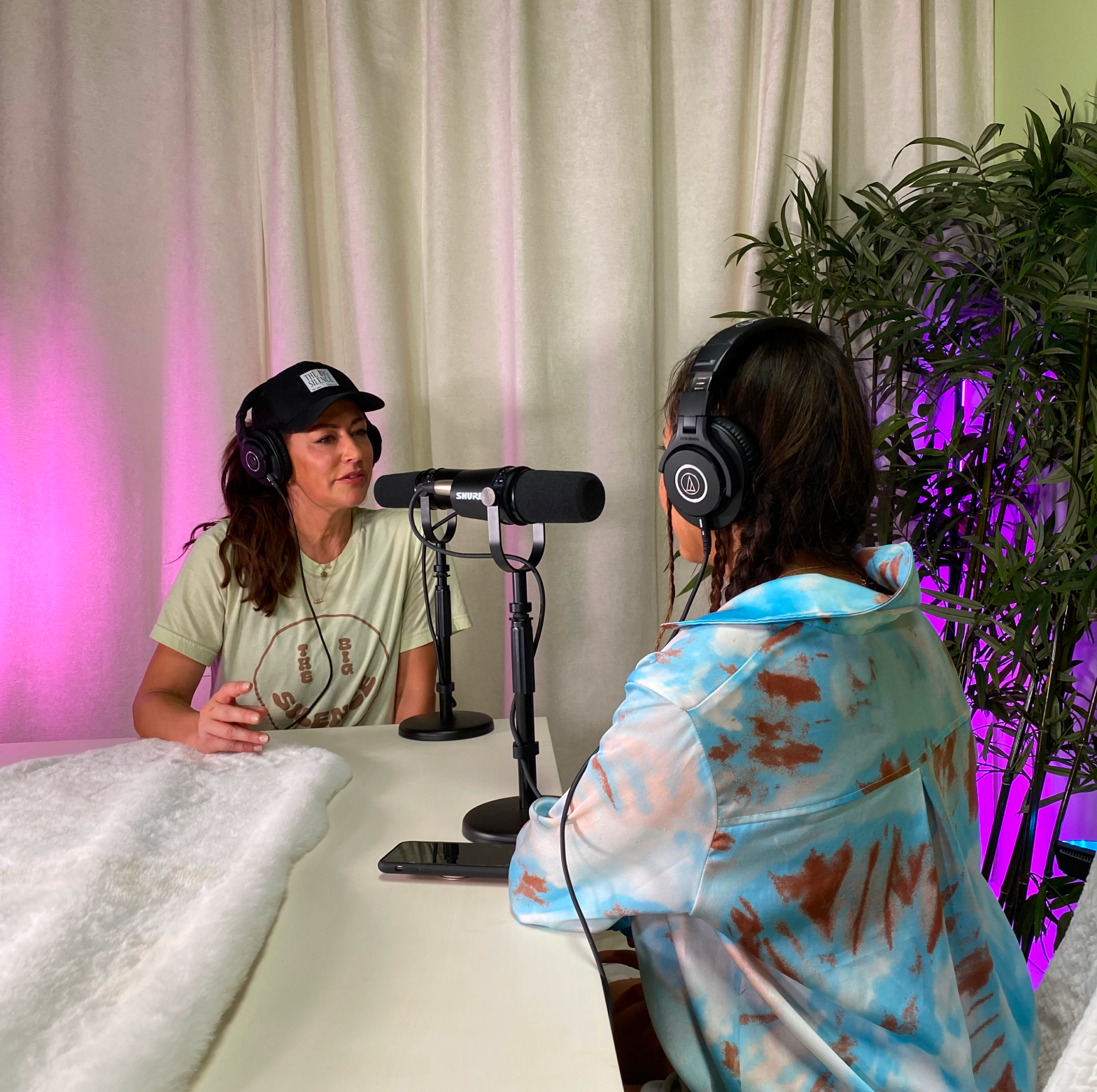
The Sleep Thief: Does Scrolling Keep You Up at Night?
Welcome back to Big Feels Monday, a weekly series by The Big Silence where we talk about how we’re feeling, and bring up tools and inspiration to help start the week off.
If you were here with us last week, you will have read about how important it is to get good sleep to ensure your mind is as healthy as possible. If you missed it, I encourage you to watch and read about How to Get Better Sleep: the Key to a Healthy Mind and you’ll find a great tools for how to create a routine to help you sleep better.
In How to Get Better Sleep last week we also mentioned the value of putting away screens before bed, and today we’ll dive a deeper into this mental health tip, and offer helpful solutions to turning off screens and keeping them off to ensure a restful night.
Today, Karena and James share their expert tips on how to quit scrolling social media at night and get a good night's sleep. They discuss the negative effects of scrolling social media or turning to the screen for entertainment before bed. They also offer alternative activities that are more beneficial for rest, such as meditation, reading, and spending time with loved ones.
This video is for anyone who wants to improve their sleep habits and overall well-being. In today's Big Feels Monday you can expect to learn:
- The science behind why scrolling social media at night is bad for sleep
- The negative effects of social media on mental health
- How to break the habit of scrolling social media before bed
- Alternative activities that are more beneficial for rest
- Tips for creating a relaxing bedtime routine
How do I break a scrolling habit?
I get so many notifications. I find it triggering, and I can’t stop looking at my phone. What can I do?
- Turning off your notifications can help you to step away from the screen. It might seem uncomfortable at first; perhaps you worry that you will miss something important. But, it gives you the control to decide when you will reply, respond, like and comment on social media or other notifications.
- Set boundaries with your screens and devices by turning on “do not disturb.” You can program the device to automatically go into DND mode at the same time everyday. Try turning it on an hour or two before bedtime, so you’ll resist the need to check the device.
- Find other positive ways to use your device to help you wind down. Sleep stories, meditation, and podcasts are all helpful options to select instead of going into your emails or social media apps.
- Go device-less before bedtime. Unwind with a journal and write down how your feeling, something that stood out to you about the day, a gratitude list, or your to-do list for tomorrow (if you need to get it off your mind!)
- Set a daily limit on apps. In the settings you can choose to set a time limit to help cut down on scrolling. Your phone will notify you when the time limit is met and will put the app in “time out.”
- If you have a partner, you might engage in a bit of pillow-talk instead of watching a movie or scrolling social media. Connecting with each other can help us to relax, unwind, and feel at ease. Try adding a bit of massage to enhance the relaxation.
Why Do Scrolling and Screens Keep Me Up at Night?
For many it has become ar common routine to find ourselves scrolling through social media feeds or news articles late into the night, even when we know we should be getting some shut-eye. What is it about this digital habit that creates such a disruption to our sleeping patterns?
Blue light disruption is one of the primary causes of disruption. Blue light has been shown to suppress the production of melatonin, the hormone responsible for regulating sleep-wake cycles. The sun is the greatest source of blue light and natural blue light helps regulate your circadian rhythm (wake-and-sleep cycles). Screens emit blue light, and in the dim light of evening, our bodies become confused, and it delays the onset of sleep. Some devices do have a "Night Mode" you can set to turn on that helps to dissipate some of the blue light.
Scrolling through social media feeds or news websites provides a constant stream of new information, images, and videos. Our brains are hardwired to seek out novelty and stimulation, and the endless scroll feature of many apps caters perfectly to this instinct. As we keep scrolling, our brains remain engaged and stimulated, making it difficult to switch off and relax enough to fall asleep. Set app limits to help interrupt the cycle of endless stimulation.
Scrolling can become habit-forming. The intermittent rewards we receive in the form of likes, comments, or interesting content trigger the release of dopamine in our brains, reinforcing the behavior and making it difficult to stop. To combat this, try mindfulness or meditation to create new neural pathways in the brain and decrease the need to scroll.
Social media platforms are notorious for triggering feelings of FOMO, or the fear of missing out. As we scroll through our feeds, we're bombarded with glimpses into the lives of others, often curated to highlight the best moments. This can lead to feelings of inadequacy or anxiety as we compare ourselves to others and worry about missing out on experiences or opportunities. The fear of missing out can keep us scrolling late into the night, unwilling to log off for fear of being left out. Scrolling has also been linked to anxiety and depression. Try to get yourself out of a scrolling funk by creating a relaxing bedtime routine and focusing on creating new habits for winding down.
Steady sleep for a more steady body and mind: Consistency is the key
Consistent sleep regulates your hormones and endocrine system, making you feel better. Joey Thurman talks about why sleep is so important.
BIG FEELS FEEDBACK
How are you really feeling? We'd love to hear about your week, or share your favorite tools for the week in the comments!
|
The Big Silence Foundation, Inc is a U.S. tax-exempt 501(c)(3) organization dedicated to changing the culture of mental health. Consistent with IRS guidelines, all gifts are tax-deductible to the extent allowable by law. Donate to bring change with us!
|
Start a conversation in your The Big Silence apparel.
The information provided is for educational purposes only, and does not substitute for professional medical advice. Users are advised to consult a medical professional or healthcare provider if they're seeking medical advice, diagnoses, or treatment.
**Please note that if your thoughts start becoming hopeless or suicidal, contact emergency at 988 or 911 andcrisis services immediately. You can find more resourceshere. Text HELLO to 741741 to be connected with a trained crisis counselor.










